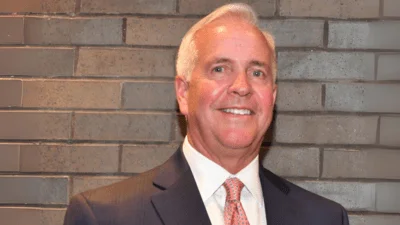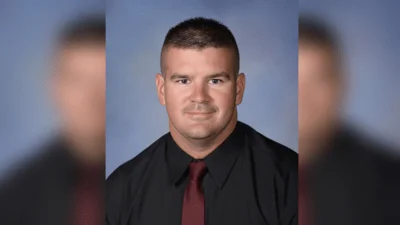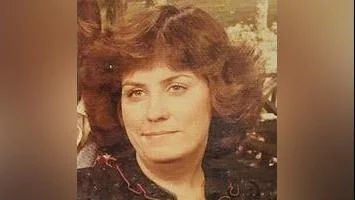Will County Legislative & Policy Committee met Jan. 14.
Here is the minutes provided by the committee:
I. CALL TO ORDER / ROLL CALL
Chair Jacqueline Traynere called the meeting to order at 9:07 AM
| Attendee Name | Title | Status | Arrived |
| Jacqueline Traynere | Chair | Present | |
| Beth Rice | Vice Chair | Present | |
| Julie Berkowicz | Member | Absent | |
| Herbert Brooks Jr. | Member | Present | |
| Mimi Cowan | Member | Present | |
| Meta Mueller | Member | Absent | |
| Sherry Newquist | Member | Present | |
| Judy Ogalla | Member | Present | |
| Tom Weigel | Member | Present |
Also Present: Ms. Winfrey, and Ms. Dunn
II. PLEDGE OF ALLEGIANCE TO THE FLAG
Mr. Weigel led the Pledge of Allegiance to the Flag.
III. APPROVAL OF MINUTES
1. WC Legislative & Policy Committee - Regular Meeting - Dec 10, 2019 9:00 AM
RESULT: APPROVED [UNANIMOUS]
MOVER: Mimi Cowan, Member
SECONDER: Herbert Brooks Jr., Member
AYES: Traynere, Rice, Brooks Jr., Cowan, Newquist, Ogalla, Weigel
ABSENT: Berkowicz, Mueller
IV. MISCELLANEOUS LEGISLATIVE REPORTS
1. ISACo Newsletters
(Information)
Ms. Traynere said we have the ISACo newsletters; I would like to talk about the one that came yesterday. I have provided handouts for you to review. There were three documents this is the Illinois County Action Program; it is their Legislative Committee draft. It explains the current law and what the proposed change is. The first one is to expand the option of Motor Fuel Tax to all non-home rule counties.
That would mean that every county in Illinois would then have the opportunity to impose a motor fuel tax so they can raise money for their roads. The second is to establish an 80% funding target for the Illinois Municipal Retirement Fund (IMRF) currently it is 100%. The current law is the Board of Trustees has the authority to set the funding goal and the current target is 100%. This year in our budget we had to give extra money to IMRF because the actuary said based on what has happen last year and what they are projecting that we were short.
Ms. Cowan said this was a big push by Chairman Lauzen in Kane County. He felt based on his personal analysis of the markets and funding; that the funding percentage could be decreased. Which would mean that our individual required contributions would be somewhat lessened. The other side of it is when you are not funding enough and something happens to the market you are in a more precarious finical situation.
Mr. Wiegle said I would hate for us to get in a slippery slope like some of these other pension plans that don’t get funded properly.
Ms. Traynere stated we are one county and I am not sure how much influence we have. I think 100% might be over the top. I think 80% is too low; perhaps somewhere in the 90 to 95%.
Ms. Newquist said they are probably mitigating it because too much of a contribution would be required to make 100%. My guess is that they said 80% at a number that will allow contributions to remain relativity stable without having to put a big infusion of cash into the system should their return assumptions change. That is just my opinion.
Ms. Traynere asked didn’t we have to put a larger amount into IMRF this past year than we initially planned.
Mr. Palmer said this is a better question for Ms. Johannsen or Ms. Hennessy there is a certain amount of money that we pay up front for the projected IMRF payments; it is called the accelerated payments. We are on track and doing what is responsible and necessary but I don’t think we are 100% of where we want to be. We have been accelerating our accelerated payments. I think we did put in additional dollars this year. There is a separate issue that ISACo board is talking about. Chairman Lauzen from Kane County is concerned about what their targets are for returns in investment. That is related but I think the issue of what we are paying is there regardless of that issue. Mr. Lauzen is focused on their lowering their target threshold which he claims that counties are having to come up with more money to stay on track for the target. IMRF is one of the better pension funds that is why people are very protective of it because we have paid in. I think that is a good issue and we should be proud of what we are doing.
Ms. Traynere stated revocation of special use ordinance this is when we give a special use ordinance or permit; unless that has a provision for revocation we can’t revoke it. I was under the understanding that if there was a violation we could revoke it.
Ms. Cowan said I am not in support of this. This was brought to the Large County Caucus by one of the members Kendell County; specific to one property. They had given a special use permit to someone 30 years ago; they have had code violations consistently. Which they have paid the fine and have been in and out of compliance. Kendall County now wants to revoke the special use permit to get the owner out because of so many code volitions. I think this sets up a dangerous president.
Mrs. Tatroe stated we have conditions on the special use if they violate these specialized conditions we can revoke the special use; because they are not complying with the terms as it was granted. In this case the code violations are not conditions they are just code violations. We would take them to administration adjudication and they would be fined; in Will County if it were a repetitive thing then I would presume that Land Use would bring it to the State’s Attorney’s Office and we would look for an injunction to stop it that way. I agree with Ms. Cowan passing the State Legislation for one issue is not a good president to set.
At this juncture a discussion was had on whether a vote had been taken in regards to the issue of IMRF or the Special Use ordinance.
Ms. Mueller stated in the handout states: The following legislative proposals have been approved for introduction and pursuit in 2020 by the Illinois State Association of Counties (ISACo) board of Directors. The document will be updated to reflect bill numbers and sponsors when the information becomes available.
At this juncture the remainder of the County Action Program was reviewed.
Handout at Committee
(Handout)
Handout at Committee
(Handout)
V. OLD BUSINESS
1. FY2021 Federal Legislative Priorities
(Information)
Ms. Traynere stated I would like to have Mr. Palmer talk about the Federal Agenda and the process. I would think that the document would be ready before the February meeting so it can be voted on at the County Board Meeting.
Mr. Palmer said we have meet with Smith Dawson & Andrews, Department Heads and some of the Legislative Committee Members. Brett Garson who is the staff person is working on a draft; he is hoping to have a rough draft in the next two weeks. We will then do an internal review we should have a draft for the February meeting for the committee to review and comment on. Ideally we would approve this in March.
2. FY2020 State Legislative Agenda
(Information)
Ms. Traynere stated the State Agenda is next Ms. Curry sent out a draft for comments.
Mr. Hassert said this is some of our ideas that you have transmitted to us to put into a document. The Highway Department for a quick take bill that is not reflected in there. There may be some other issues that might not be reflected in there; we will keep you informed of. As you know Springfield has things that come up quickly and we have to respond as we try to communicate with leadership. This is a draft and we are welcome to your changes.
Ms. Rice stated I would like some opinion on CCDD and the monitoring of ground water. This is something I have become more interested in for in Will County. I was wondering if this is sufficient for our position; it seems pretty neutral to me. It says that the rules that currently governs these facilities are seriously flawed and do not provide adequate to protect ground water. I think also the monitoring is big issue and the ability to monitor; I am not sure that this captures that.
Mr. Hassert said those are two different things. There is groundwater monitoring and we have a delegation that allows to inspect these types of facilities. I had a meeting with the Federal Law Council because the law-suit is over and we did not prevail. They are interested in moving this forward along with some of the other environmental groups. We have a new Governor and a new Director of EPA. Not only the ground water monitoring issue but others that we are interested in looking at. I think we have made a lot of progress on it. We have a unique situation with a transfer station coming down here via barge into Romeoville. It is a new concept and we want to make sure we are handling that properly. I think the environmental community has the ear of the Governor and the EPA. We are hoping to form a coalition to advance forward.
Mr. Palmer said last year we debated the format of the agenda. I think there were some of this group who wanted a more streamline bullet pointed document. We went the other way and made the agenda more like the State Agenda and made it more robust. This year it’s more streamlined.
Ms. Dunn said we were able to streamline from last year; my question to you is which month would you like the committee to pass this. My suggestion would be February for the Full Board.
Ms. Traynere stated I would like this on the agenda for the February meeting; to take a vote of the Full Board.
Handout from Mr. Hassert at Committee
(Handout)
VI. OTHER OLD BUSINESS
VII. NEW BUSINESS
1. Disc: Animal Control Procedures
(Dr. Michelle Roessler)
Ms. Traynere stated I asked you here today to give the benefits that we give to the residents of Will County from Animal Control.
Dr. Roessler said most of the benefits that Animal Control gives to the residents is public safety. That includes animals that get loose and are running at large. I would say our second most important is rabies control; rabies virus is endemic and it does exist in the bat population in the State of Illinois. There are other states that have to deal with raccoon’s rabies and fox rabies; we are fortunate enough to not have to deal with that. The bats alone and people encounter bats all of the time; in their homes or in public buildings. The first line of defense is rabies vaccination in our companion animals. The rabies can potentially transfer to a pet and then to people. Our second line of defense with rabies control is how we go about making sure the public stays safe if they are bitten by an animal. We do run and spay and neutering program where we have a rebate avaibable for the residents of Will County to spay or neuter their pet with a $40. rebate. The pet is also required to have a current vaccination and registration. As far as micro chipping is concerned we do encourage it but it is not mandated by the State. This is something that could be looked at; however it is not a failsafe because even if an animal is microchipped it is up to the owner to register their home address.
At this juncture there was a brief discussion about the process used with micro chipping of a pet.
Dr. Roessler said at this time our offices are administrative only; in our new building we will have the ability to have temporary emergency housing. With that idea that we push the intake of our animals out to veterinary facilities where they are in the most capable hands. We will also be able to reunite animals with their owners on site. We have an animal placement coordinator who is responsible for contacting Lost Pets of Illinois. Making sure that our Animal Control Officer has scanned the animal for microchips.
Mr. Tkac stated the ribbon cutting for the new building will be on March 5, 2020.
2. Disc: Testing of Clean Construction Demolition Debris
(Dean Olson)
Mr. Olson stated I have Eric Fasbender he is our waste analyst; his background is in the consulting world and knows a lot about sampling. I asked him to developing the sampling program with the input of the EPA. We have picked 9 Clean Construction Demolition Debris (CCDD) sites and 2 Uncontaminated Soil Fill Operations (USFO) sites. We collected 5 samples that came back that were exceeding the Maximum Allowable Concentrations (MAC) levels. Those we had re- analyzed and the owner of the property advised they were split sampled. It was determined by the EPA that the exceedances where not very much; they were metals that were naturally occurring anyway. We did the samplings from May till October; we chose the warmer months because they are more active at that time. We also hit the sites that take a lot of waste. We were not able to sample a barge; there was not one at the site when we were there. Next time we will be sure to get a sample from a barge.
Mr. Fasbender said it is my understanding the soil is taken into Cook County where it is checked with PID (Photo Ionization Detector) and based on their State sampling requirements. It then is checked again when it is loaded on to the barge. It is shipped down to the facility where it is checked a third time. Then it is put into final placement.
Ms. Traynere asked if the EPA gets the results of you findings.
Mr. Fasbender stated yes; specifically when the results exceeds the state table. We contact our project manager and find out what is needed. It takes 7-10 days for the test results; we then contact the site and let them know our findings. Part of our regular inspection is to review those documents.
Ms. Rice asked what changes need to be made in the State Law to insure that there is ongoing adequate monitoring.
Mr. Olson said one is the barges; if they are all together on a barge it may be difficult to know which load came from which. We need to know if that load came from a specific place; perhaps double checks would help. Another thing is the new permits that are sent out do not require the site to report the rejected loads right away. They just keep them on file and once we show up they are given to us. The old permits do require them to notify us right away.
Ms. Berkowicz asked who changed the permits.
Mr. Fasbender stated the State changed the permits. We do ask that the sites send us information when they receive a rejected load. That way we have a heads up on the rejected loads.
Ms. Traynere asked why you care about rejected loads; they were rejected and can’t be put into the site.
Mr. Olson stated because we want to know where that rejected load went.
Mr. Hassert stated we want to know once it leaves the site where it goes.
Mr. Olson said they are able to bring it back to the site that it originated from. It should really go to a landfill.
Ms. Traynere said this is something we should work with the EPA on; and see if we can clean up some of these processes.
Mr. Hassert said that would be a rule change. The barges are our biggest problem the Sanitary Shipping Canal. It has a path to Southern Cook County where a lot of the problems are created.
Ms. Newquist asked if there are penalties for accepting a bad load.
Mr. Olson said we first determine if it is a violation them a violation notice. It takes three to six months to get through that. If we can determine where the problem is then it gets resolved. If they want to fight it; then it goes to a (NITP) Notice for Intent to Pursue Legal Action letter. If that doesn’t get resolved it then goes to court.
VIII. OTHER NEW BUSINESS
IX. PUBLIC COMMENT
X. CHAIRMAN'S REPORT / ANNOUNCEMENTS
XI. EXECUTIVE SESSION
XII. ADJOURNMENT
http://willcountyil.iqm2.com/citizens/FileOpen.aspx?Type=12&ID=3711&Inline=True





 Alerts Sign-up
Alerts Sign-up